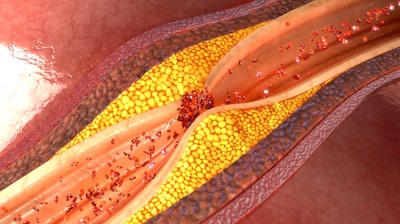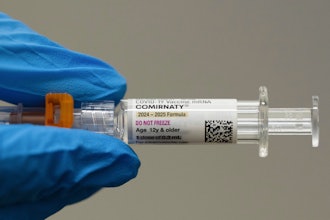
Shockwave Medical, Inc., part of Johnson & Johnson MedTech, has announced the 30-day primary endpoint results of EMPOWER CAD, the first prospective, real-world percutaneous coronary intervention (PCI) study in female patients with complex, calcified coronary artery disease. The favorable results confirm the results of earlier retrospective analyses demonstrating the benefits of coronary intravascular lithotripsy (IVL) in female patients.
Women with coronary artery calcification (CAC) undergoing PCI are often underrepresented in clinical trials and have historically poorer outcomes than men, including increased risk of adverse clinical outcomes and high rates of procedural complications with other calcium modification treatments, such as rotational or orbital atherectomy.
Investigators designed the EMPOWER CAD study to evaluate real-world outcomes in female patients with severely calcified coronary lesions treated with an IVL-first treatment strategy and confirm positive results from previous studies showing similar safety and effectiveness outcomes across both men and women.
The study enrolled 399 participants across 45 sites spanning five countries in the European Union and United States. The study is led by co-principal investigators Margaret McEntegart, M.D., Ph.D., Director of the Complex PCI and CTO programs and Cardiac Catheterization Labs at Columbia University Medical Center/NewYork-Presbyterian Hospital and Alexandra Lansky, M.D., Professor of Medicine in the section of Cardiovascular Medicine and Director, Heart and Vascular Clinical Research Program, Yale University School of Medicine. The study’s European lead is Nieves Gonzalo, M.D., Ph.D., consultant interventional cardiologist at Hospital Clinico San Carlos in Madrid, Spain.*
“Women are typically underdiagnosed, underrepresented and have underwhelming outcomes in coronary artery disease studies,” said Dr. Lansky. “Our goal with the EMPOWER CAD study was to address this gap and determine whether Shockwave IVL should be considered as the front-line calcium modification approach in female patients with complex coronary artery disease. The results demonstrate the benefits of IVL use in this specific patient population and validate findings from previous studies.”






















